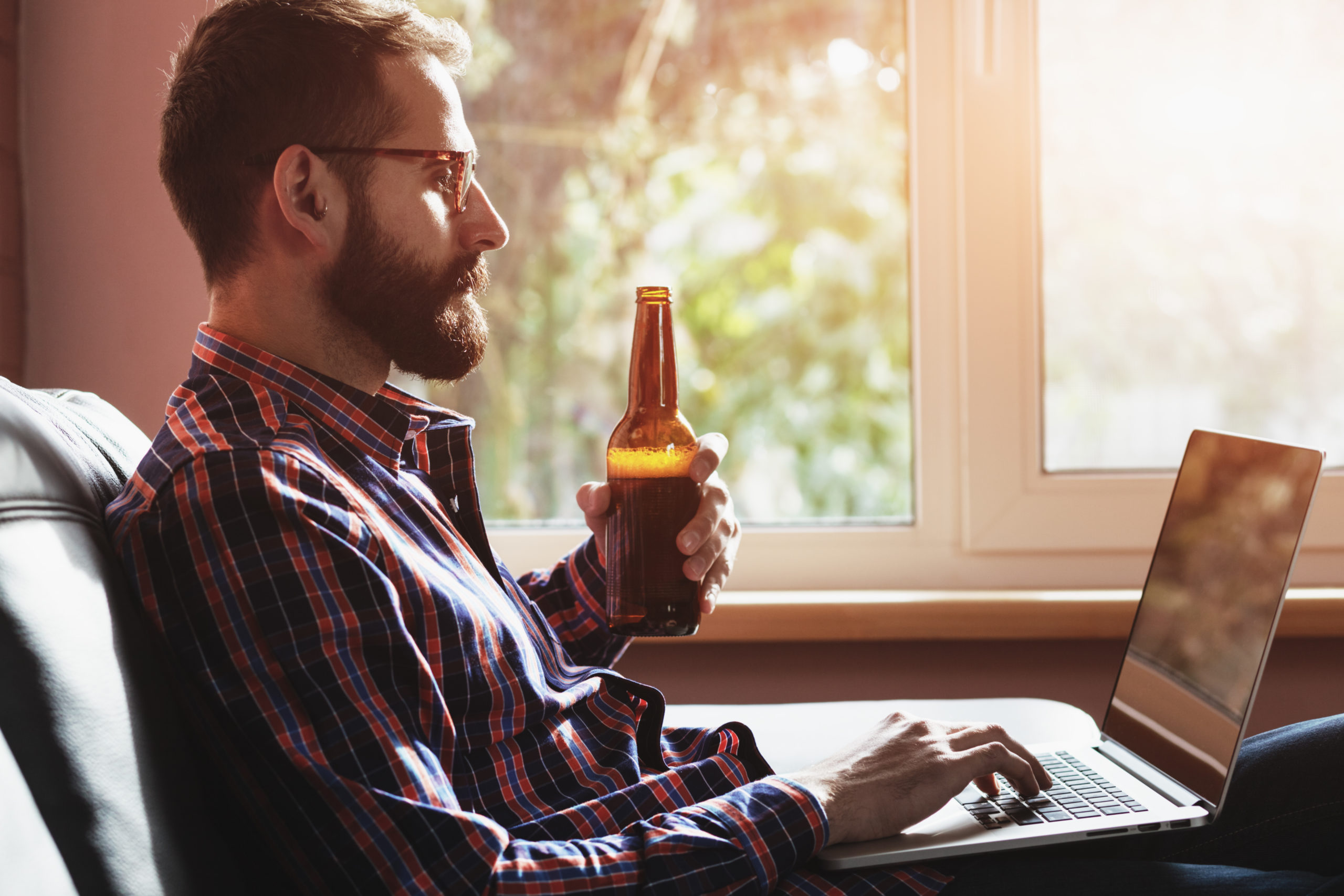Clearly, the era of social distancing has created issues like loneliness and isolation. With most states holding mandates for people to remain indoors due to the COVID-19 (or coronavirus) pandemic, there is most certainly a need for human interaction via apps like Zoom and FaceTime. And, not surprisingly, a common way that people are socializing is with “virtual happy hours,” or joint chat sessions that involve beer, wine and spirits. In theory, it’s understandable as it simulates the experience people might have at a bar or restaurant (most of which are now closed). But there are certain risks people should be aware of, especially if they’ve struggled with issues like alcoholism in the past.
Not only are groups of friends hosting virtual happy hours, they are also being organized by local bars and clubs. Now we certainly understand that these are small businesses and need outlets to keep their staff employed, but there are concerns to think about when encouraging people to drink excessively at home.
Local Boise affiliate KTVB highlighted the growing trend of bar-hosted virtual happy hours, explaining what guests can experience when they log in. One popular local establishment, Whiskey Bar, has gotten thousands of views for its weekly events on Facebook and Instagram.
“We’ve got five different bartenders from their homes putting content together and we’re trying to make it as relatable as possible,” Whiskey Bar manager Chris Bailey told the site. “So this will be their big chance to become a mixologist at their house.”
Wine parties and beer crafting events have also become quite popular during this age of COVID-19. Our concern is the monitoring that needs to be involved at this level. Typically at businesses, bartenders and managers can step in if a person becomes too inebriated. Now, many people are home alone and could potentially fuel an alcoholism problem with these regular happenings.
We’ve mentioned before how isolation can take a toll mentally on people, particularly if they live alone. When issues like depression arise, there are urges to drink more and find outlets to “numb the pain.” Now that concept is becoming much more accessible (and even encouraged) via the rise of virtual happy hours.
While we certainly believe in interactions and live chats during this time, we are urging anyone struggling with alcoholism to avoid virtual happy hours. They can be dangerous and lead to a slippery slope. And, on the plus side, with virtual recovery meetings on the rise, there are plenty of other, more positive outlets for chatting and cheering each other up.







